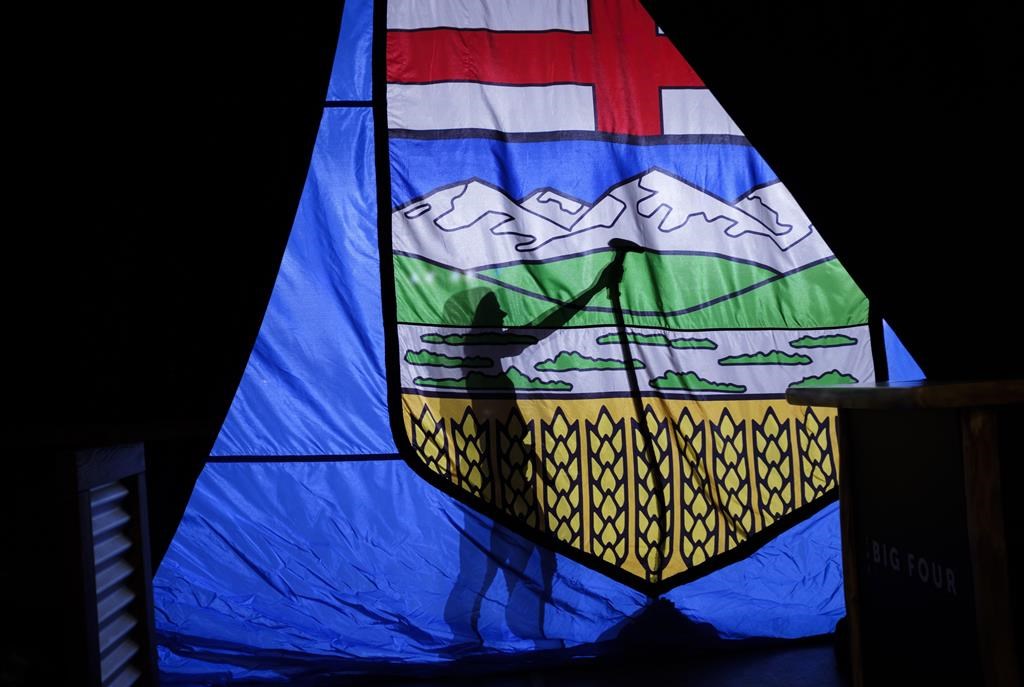Canadians are no less divided now than they were just after the election, according to a new Ipsos poll exclusively for Global News.

And while clear majorities of respondents in the Prairie provinces say they “have good reason to be mad about how they are treated by the federal government,” only about half of Canadians say they agree.
More than 80 per cent of respondents in Alberta and 70 per cent in Saskatchewan and Manitoba said their provinces have legitimate beef with Ottawa.
In contrast, 47 per cent of respondents nationwide said the same.
That number is unchanged since polling done at the tail end of a divisive election campaign that saw anger and separatism spike in the West and remain despite repeated acknowledgements by the Liberals, including in the throne speech, of the legitimacy of those sentiments.
The discrepancy in the poll could suggest the concerns of those in the Prairies just aren’t resonating with Canadians elsewhere.
“Unfortunately, Canadians don’t want to hear about the problems of other Canadians because they have their own,” said Sean Simpson, vice president of public affairs at Ipsos.
“In British Columbia, they’re struggling with housing prices; in Ontario, manufacturing jobs are being lost; in Eastern Canada, they’re struggling to keep their employees in Atlantic Canada and not moving to other parts of Canada or the United States.
“Everybody’s got their own problems and they’re not feeling too sympathetic towards the Albertans and those from Saskatchewan who are crying foul.”

At the same time, the number of Canadians who believe the country is more divided than ever has barely budged since just before the election.
Fifty-seven per cent of respondents said the same in this latest poll, only a two-point drop from 59 per cent on Oct. 19.
That’s a result squarely within the poll’s margin of error.
Prime Minister Justin Trudeau was reduced from a majority to minority mandate in the federal election in October but his Liberals were entirely locked out of Alberta and Saskatchewan.
Since then, he has met repeatedly with Western leaders and shuffled Chrystia Freeland from the foreign affairs portfolio to become deputy prime minister and minister of intergovernmental affairs.
As part of that role, she was tasked with working directly with the provinces and, in particular, those in the West, to try to resolve differences and divisions.

Conservative critics have voiced skepticism about whether the federal government will be able to do that and the Ipsos polling suggests many Canadians feel the same.
Respondents were asked to indicate whether they agreed or disagreed with the statement that “the new federal government will do a good job uniting the country.”
Just 39 per cent said they agree, while 43 per cent disagreed.
- ‘Shock and disbelief’ after Manitoba school trustee’s Indigenous comments
- Canadian man dies during Texas Ironman event. His widow wants answers as to why
- Several baby products have been recalled by Health Canada. Here’s the list
- ‘Sciatica was gone’: hospital performs robot-assisted spinal surgery in Canadian first
Those views were strongest – but opposite – in Alberta and Quebec.
ANALYSIS: Western alienation is very real in Alberta and Saskatchewan
Fifty-four per cent of Quebecers said they believe the current Liberal government will unite the country, while 65 per cent of Albertans said it would not.
But despite those numbers, sentiments in support of separatism remain low.
A total of 71 per cent of respondents rejected the statement that “my province would be better off if it separated from Canada.”
Only 19 per cent agreed.
Of those who agreed, the sentiment was stronger in Alberta (31 per cent) than in Quebec.
Just 26 per cent of respondents from la belle province said the same.
Exclusive Global News Ipsos polls are protected by copyright. The information and/or data may only be rebroadcast or republished with full and proper credit and attribution to “Global News Ipsos.” This poll was conducted between Dec. 3 and 5. For this survey, in total a sample of n = 1,002 Canadians aged 18+ was interviewed using the Ipsos I-Say Panel. Quotas and weighting were employed to balance demographics to ensure that the sample’s composition reflects that of the adult population according to Census data and to provide results intended to approximate the sample universe. The precision of Ipsos online polls is measured using a credibility interval. In this case, the poll is accurate to within ± 3.5 percentage points, 19 times out of 20, had all Canadians been polled.




Comments